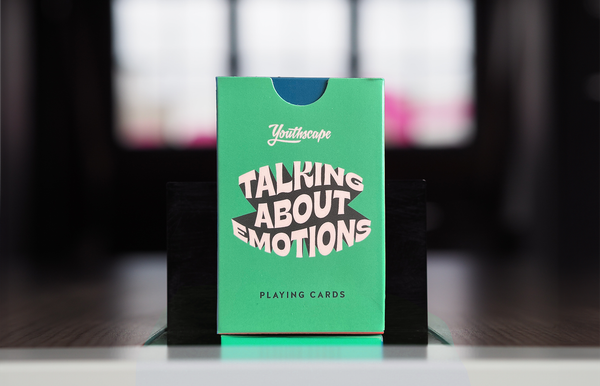Suicide is the theme of 2019’s World Mental Health Day. SelfharmUK’s Jessica Whittaker points to the lifelines available to young people who are struggling.
Today is World Mental Health Day.
This takes place on 10th October every year with two goals. Firstly, raising awareness of mental health issues around the world. Secondly, providing an opportunity for organisations working to support people with their mental health to talk about what they do and how you can help them.
This year’s theme set by the World Federation for Mental Health is suicide prevention.
Sadly, most of us will have some connection with someone who has died by suicide. It might be a close connection, as in a family member or friend, or a more distant one, such as when when our train is halted because of a fatality on the line.
"Every year close to 800,000 people globally take their own life and there are many more people who attempt suicide." - Time To Change
Suicide is not an easy thing to get your head around, let alone talk about. Understanding why someone would attempt to take their own life is never straightforward, and not to mention extremely upsetting and scary too. Despite this, we need to talk about suicide, now more than ever.
"Suicide is the biggest killer of young people in the UK."
"Over 200 school children are lost to suicide every year."
- Papyrus
The statistics are heart-breaking. Fortunately, there are organisations out there that are working really hard in order to prevent teen suicides. These include Papyrus and the Society for the Prevention of Teen Suicide (SPTS).
But they can’t do it alone.
There are so many reasons why a young person may choose to take their own life. As teachers, youth workers and parents, we know that the teenage years can be a difficult period. Body developments and changes in thoughts and feelings often affect a teen’s problem-solving and decision-making abilities. Along with pressure to succeed in their education from their family, their peers and themselves, young people who are more at risk of suicide are those who have experienced/are experiencing:
- Changes in family life such as: divorce; siblings moving out; moving to a new area
- Changes in friendship groups
- Being bullied or experiencing other problems in school
- Loss/death of a close family member, friend, relationship or pet
- One or more mental or substance abuse problems
- Impulsive behaviours
- Family history of mental or substance abuse problems
- Family history of suicide
- Family violence, including physical, sexual, or verbal or emotional abuse
- Previous suicide attempt
- Imprisonment
- Exposure to the suicidal behaviour of others such as from family or peers, in the news, or in fictional stories
What can you do?
If you’re working with a young person that you think could be at risk of suicide, don’t be afraid to act.
The first thing you should do is get some advice. There is no shame in being concerned that a young person you know could be thinking about suicide. The sooner you ask for help from a professional, the sooner you can get some advice and support in place for them.
Papyrus have a confidential support and advice line called HOPELINEUK, and there are a few, easy ways you can get in contact with them:
Call: 0800 068 4141
Text: 0778 620 9697 or
Email: pat@papyrus-uk.org
The second thing you could do is talk to the young people you work with about suicide. Encourage them to have conversations with each other and break the awkwardness, fear and taboo that suicide can often hold over us. To help them do this, they could read SelfharmUK’s latest blog post all about ‘How NOT to Talk About Suicide’ (and take the corresponding quiz) on their website dedicated to young people.
It’s only through talking about suicide that we can give the young people we love and care about a chance to say that they need help.








